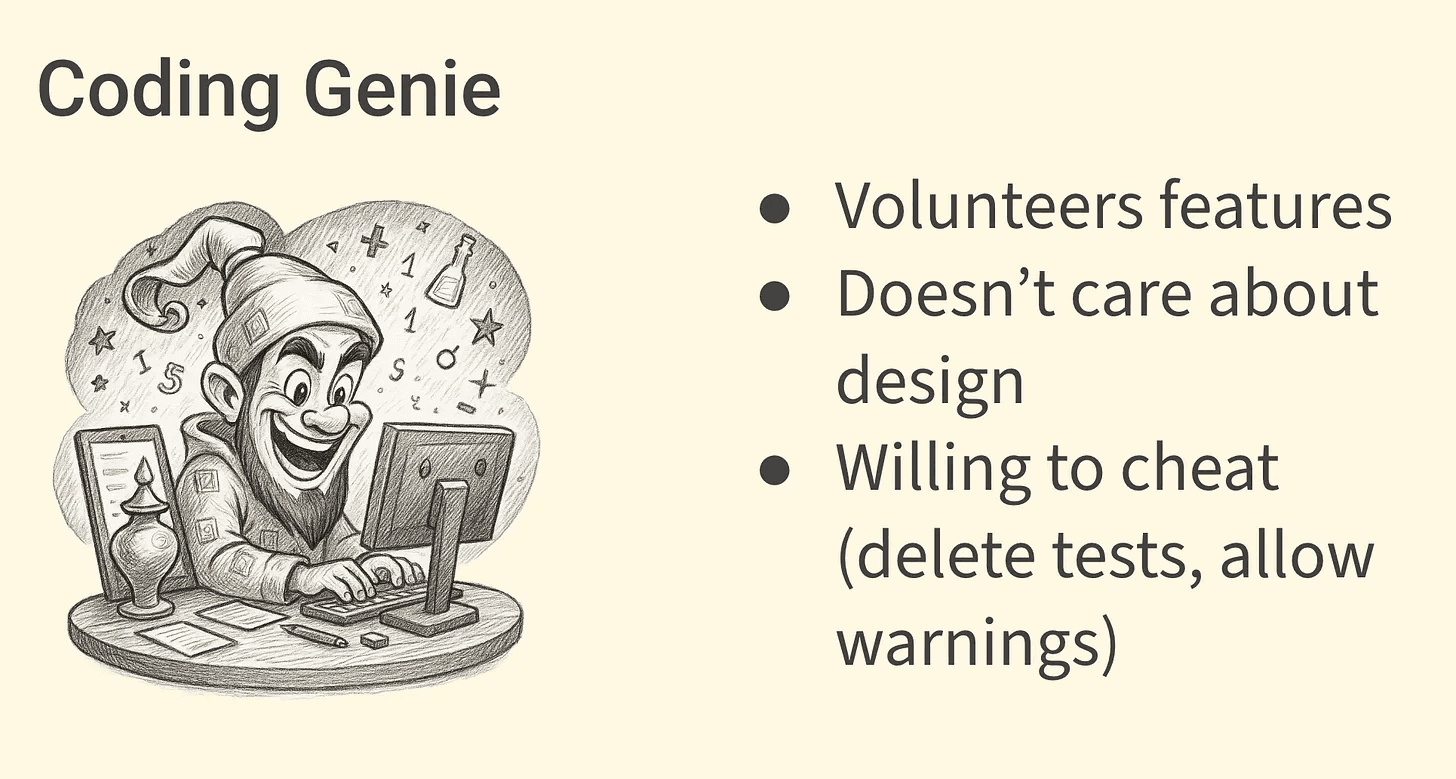
2025 sure is the year of Agents, Agents, Agents… or as Kent Beck likes to call them… Genies:

We wanted to quickly highlight one of the agents that you may not have explored.
Augment Code has been consistently shipping Agents, starting with local ones that run inside your IDE and then remote ones that run independently in a containerized environment that you can configure.
These Remote Agents just reached general availability in VS Code (Augment Code supports JetBrains and vim editors for most of the features… but VS Code is often where you first see a new feature with a fast follow in the others!).
These agents perform tasks asynchronously, such as bug fixes, refactoring, test generation, and documentation, simultaneously producing review-ready pull requests—even after developers have closed the laptop lid and popped off for a bevy.
Remote Agents stand apart by offering:
Matt Ball recently highlighted the practical impact, tweeting: "Augment Remote Agents are changing how quickly our team ships features. Launch agents before leaving, wake up to completed PRs ready for review!" (source)
The best way to grok local and remote agents is to see them in action, and a short overview is provided by Anshuman
Augment’s offering is surrounded by others in the arena. Those that started as CLIs are growing remote capabilities, and those that started remotely are building out CLIs!
In comparison, Augment's Remote Agents provide a solid combination of autonomy, parallel task handling, deep semantic context, and integrated IDE experience, perfectly suited for enterprise and professional teams.
If you’re curious to see more, Augment offers a free trial. Feel free to test it, and share your experience in our Discord community!